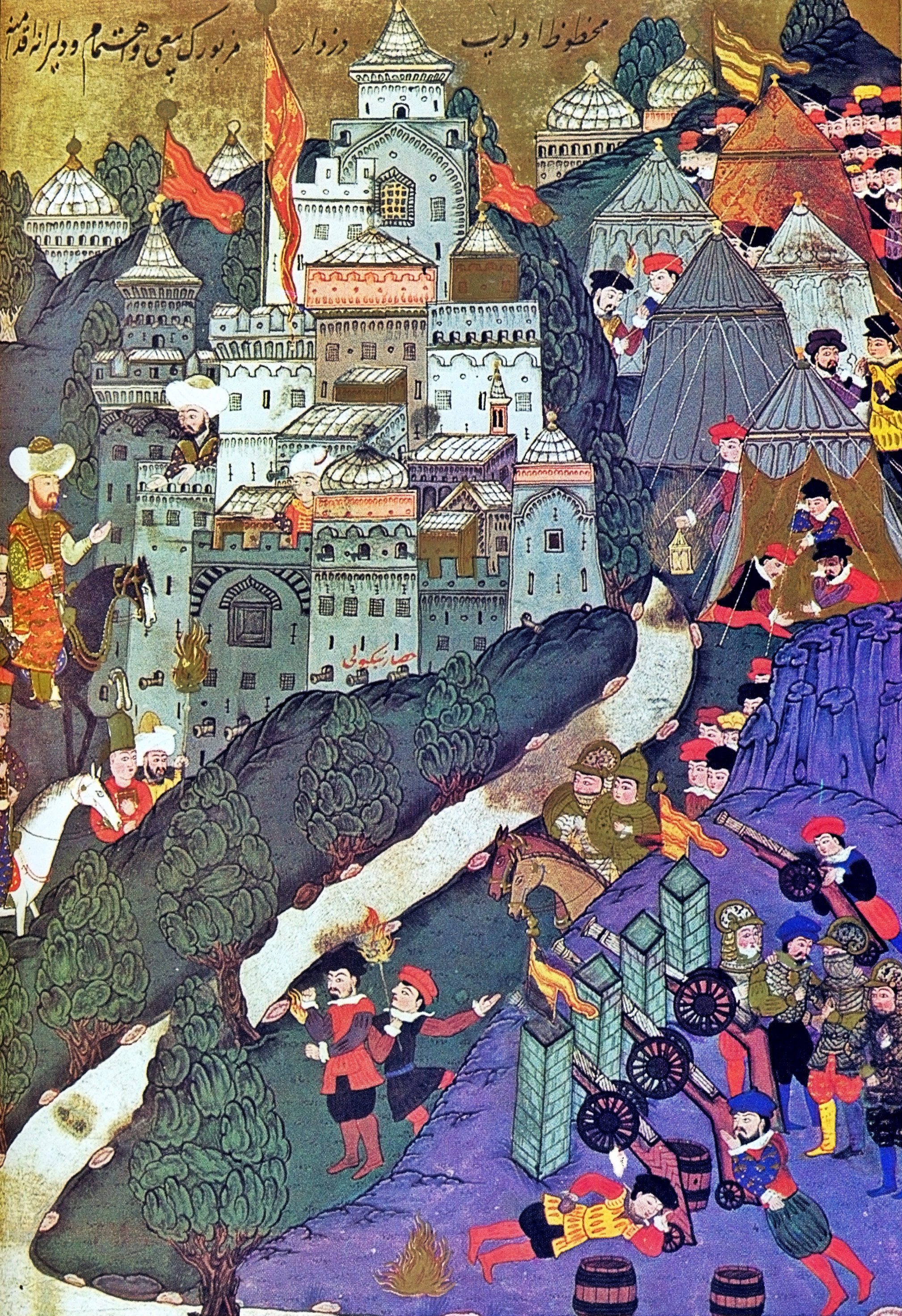| The shield for the Ottoman dynasty. It's got a lot going on. |
While I'm sure some historian would slap me in the face for this, the Ottoman empire was essentially modern day Turkey - well, at least started there, as you can't really call yourself an empire if you're not wildly taking over other places. The conquest of Constantinople (one of the many of history) in 1453 is what officially gave it the empire status. Apparently, the ruler at the time of the taking of the city was only 21 years old, which sparks a number of deep, personal questions about the life choices of my 22 year old self.
 |
| A depiction of the Battle of Nicopolis. I would like to point out the guy lying down near the bottom of the picture. I find him hilarious. |
They had a few minor problems along the way though, mostly with civil war and all. A Turkish Mongolian leader, Timur, invaded Anatolia (just know it's a place in Turkey) and defeated Bayezid I, the reigning sultan. However, when Timur established Mehmed Celebi as sultan, his brothers refused to recognize him. Civil war was the result, and while Mehmed eventually won out, they lost a great deal of territory and grew significantly weaker. This was only a temporary setback though, and Murad II restored much of the previously lost land in about twenty to fourty years, depending on which city is in question. Unfortunately, when detailing the history of an empire in a short blog post, names such as the ones mentioned in this paragraph seem to be glossed over. I'm sure they had much greater significance than I'm demonstrating here, but... I'm not reading a wiki page for every freaking battle that took place. That's for actual historians, not those of the idiot variety.
Eventually, in what must have seemed like a long awaited invasion for those poor Byzantine, Mehmed II (son of Murad II, which, again, I'm sure holds significance) conquered Constantinople. This marked a new age for the Ottoman empire; their economy flourished due to the overland trade route they possessed between Asia and Europe, as well as effective sultans running the show. In warfare they fared no worse, defeating Persia, ruling some of Egypt and going toe to toe with the powerful Portuguese, known back then for more than just their soccer playing ability.
 |
| Suleiman the Magnificent; if the size of the headgear corresponds to his quality as a leader then he has well earned his title. |
Unfortunately, things started going downhill for the Ottomans after his departure. The more Western Europeans began to take over in military technology and other discoveries as the Ottomans started to put more emphasis on religion, much as the Europeans had done prior to the Renaissance. They didn't quite have the same dominant power they held before, and falling behind in science can really hit an empire where it hurts. Regardless, they were still a powerful expansionist power, right up until the Battle of Vienna. They fought the Romans, longtime enemies of the Ottomans, and the lost marked the sharp decline of their civilization. Afterwards, a number of smaller wars were lost, and despite brief recaptures, a second Ottoman siege of Vienna spelled the decline. The treaty of Karlowitz marked a resignation of much of their land over to the Holy Roman Empire and a few others. Oh, and the bustling economy from trade routes to Asia? New maritime ones were found that no longer required Ottoman trade. Basically, they were a schoolyard bully who fought a larger bully who then took his swing-set. While he was down, some other kids took his lunch-money. That entirely pointless metaphor sums it up quite well I hope.
After some hindered attempts at reform (religious groups still caused some trouble there) the Ottoman empire continued to decline. With a reliance on the rest of the continent for money, the once mighty empire was deemed the "sick man" of Europe, coughing and wheezing over to collapse. They took part in World War 1, which is amazing to think that the Ottoman empire was actually there as the name holds such a "middle ages" feel to it. Anyways, after WW1 the empire was officially split up, creating the modern Arab world and the Republic of Turkey.
The Ottoman name will be forever remembered through cheap purchases of furniture at Ikea.
Famous Historical Figures Say the Darndest Things!
- "We have a sick man on our hands, a man gravely ill, it will be a great misfortune if one of these days he slips through our hands, especially before the necessary arrangements are made." This quote is attributed to Tsar Nicholas I of Russia, who must have been great fun at funerals and will readings.
No comments:
Post a Comment